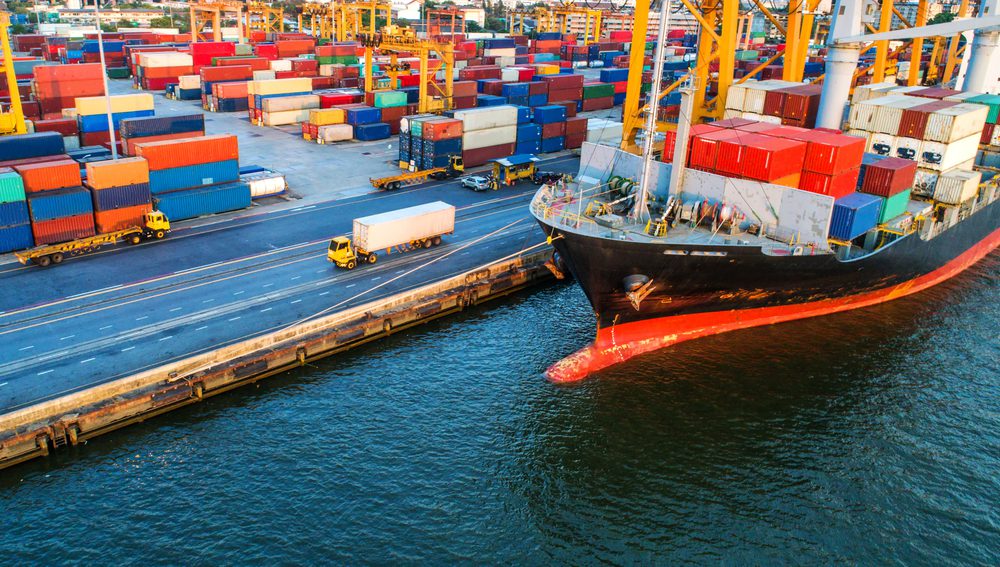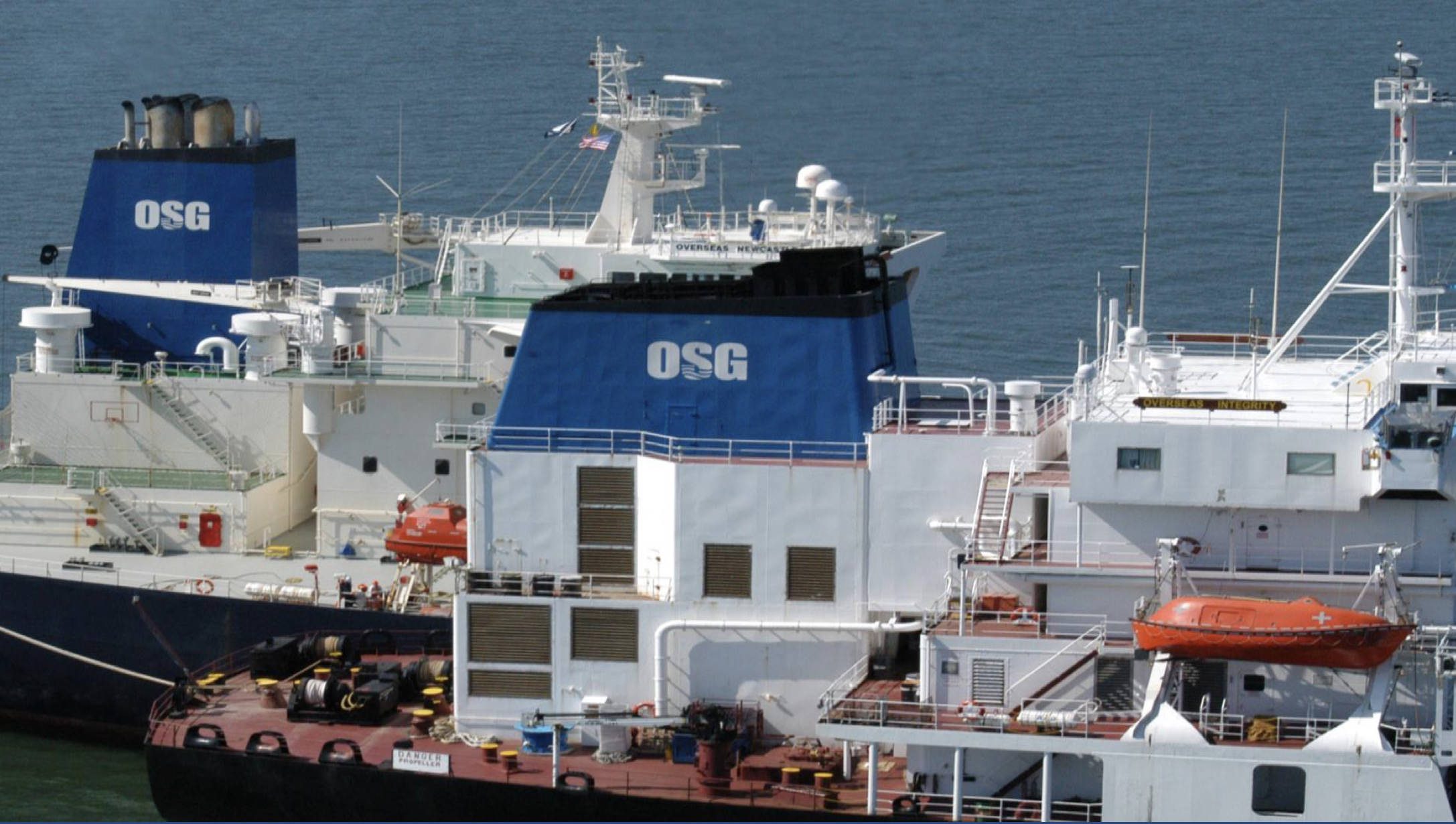MAGNIFIER / Shutterstock
Approximately 80% coastal member states of the United Nations have some form of cabotage laws governing foreign maritime activity in their domestic coastal trades, according to an independent analysis conducted by the Seafarers’ Rights International (SRI), a leading international research center on maritime and seafarers’ law.
The key finding was part of a new report published Tuesday by SRI that explores the nature and extent of cabotage laws around the world. The study, which was commissioned by the International Transport Workers’ Federation (ITF), provides the first independent analysis of maritime cabotage laws since 1992.
The report published today, titled Cabotage Laws of the World, has identified for the first time ninety-one member states of the United Nations that have cabotage laws restricting foreign activity in their domestic coastal trades. It also describes the history of maritime cabotage and traces a number of early rudimentary legal principles, as well as sets out examples of the many different definitions of cabotage that exist today at the national, regional and international levels. The report also highlights examples of the restrictions of foreign activity and waivers in domestic coastal trades.
“For many people maritime cabotage, or coasting, coastwise or coastal trade as it is sometimes referred to, is understood, if at all, only vaguely,” said Deirdre Fitzpatrick, Executive Director of SRI. “This is not surprising since so little is published on the subject. This was a complex project, given language and cultural barriers and difficulties in statutory interpretations. But the subject is important. It affects a very wide range of trades, services and activities around the world, and with significant social and economic consequences. Policy makers especially need to know more about the subject.”
The ITF and its affiliates have been campaigning globally to underline the importance of national cabotage laws and the value of having domestic jobs in national waters, as well as domestic employment conditions for foreign seafarers in cases where national seafarers are not available. The workers union group welcomed the publishing of the report, calling it a ground-breaking analysis of maritime cabotage laws around the world.
“The lack of accurate facts on cabotage laws around the world has been an impediment for policymakers considering implementing cabotage laws. This report represents a circuit breaker, providing policymakers with the relevant facts for proper decision-making,” commented ITF Seafarers’ Section Chair, David Heindel.
“The SRI report debunks the myth that cabotage is an exception, not the rule. Laws governing maritime activity are widespread, currently existing in 91 countries covering 80% of the world’s coastlines of UN Maritime States,” Heindel added.
According to the report, cabotage laws are commonplace and geared towards protecting local shipping industries, ensuring the retention of skilled maritime workers and preservation of maritime knowledge and technology, promoting safety and bolstering national security.
The key findings from the report include:
- Cabotage is “widespread” – 91 member states and eighty percent of the world’s coastlines of UN maritime states have cabotage laws
- Cabotage policy objectives are diverse and designed to: maintain national security, promote fair competition, develop human capacity, create jobs, promote ship ownership, increase safety and security of ships in port, enhance marine environmental protection and preserve maritime knowledge and technology
- Cabotage exists in every region of the world, and in a diversity of political, economical and legal systems
- Cabotage laws have endured in some countries for centuries
James Given, Chair of the ITF Cabotage Task Force commented: “The benefits of cabotage laws are self-evident. For countries that depend on the sea for their trade, cabotage safeguards their own strategic interests as maritime nations, bringing added economic value whilst also protecting national security and the environment.
“Cabotage provides jobs for a country’s seafarers and also safeguards foreign seafarers against exploitation posed by the liberalisation in the global shipping industry, preventing a race to the bottom.
“Without strong cabotage rules, local workers often have to compete with cheap, exploited foreign labour on Flag of Convenience vessels, the owners of which usually pay sub-standard wages and flout safety laws,” Given said.
In the United States, cabotage laws that govern the transportation of goods and people between domestic ports are commonly referred to as the “Jones Act,” an essential maritime law that requires movements of goods and people be on vessels that are U.S.-flagged, U.S.-crewed, U.S.-built and U.S.-owned. This comprehensive study of UN members’ maritime policies and cabotage requirements can further inform policymaking in a fact-based manner.
“The United States is, and always has been, a maritime nation. From the very founding of our country, the American maritime industry has served a critical role in maintaining our national, homeland and economic security,” said Matt Woodruff, Chairman of the American Maritime Partnership. “For policymakers that work to promote a strong and vibrant economy and national security leaders charged with protecting the U.S. security posture, this comprehensive study reinforces the importance of cabotage laws – like the Jones Act – and the historical legislative actions taken to support maritime industries across the globe, including in nations like Russia, China and South Korea.”
Read the report: Cabotage Laws of the World
Unlock Exclusive Insights Today!
Join the gCaptain Club for curated content, insider opinions, and vibrant community discussions.

 Join The Club
Join The Club







![A screengrab of a map showing an earthquake Mindanao, Philippines on Dec 2, 2023. (Image: US Geological Survey [USGS])](https://gcaptain.com/wp-content/uploads/2023/12/Screenshot-2023-12-02-at-10.45.17-AM-copy.png.webp)





